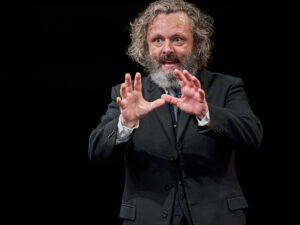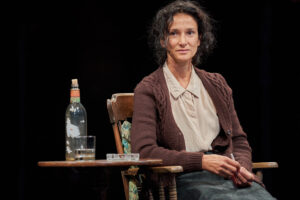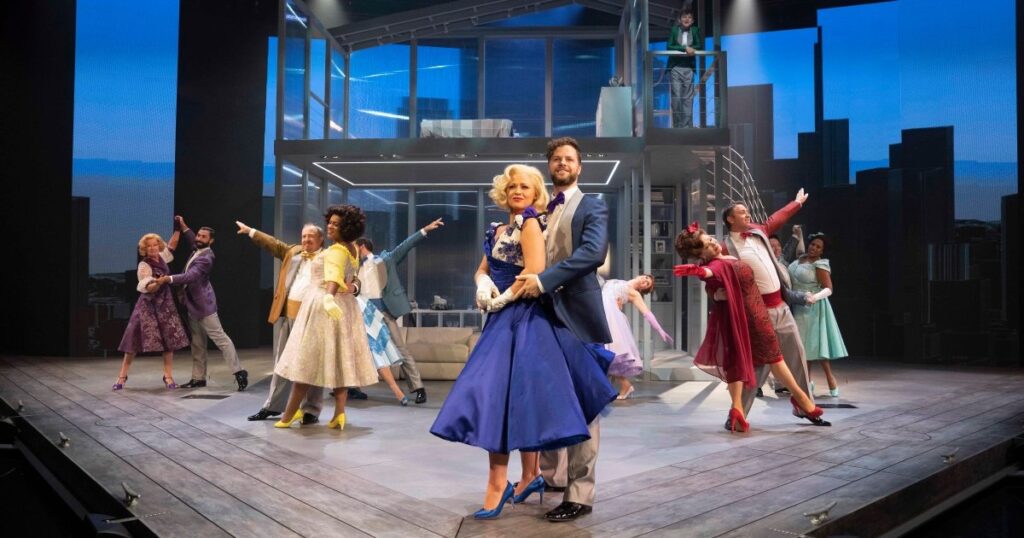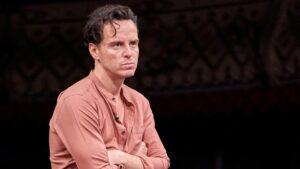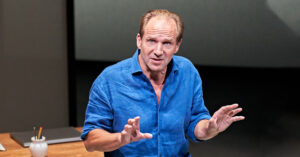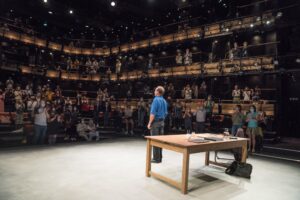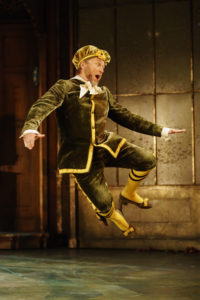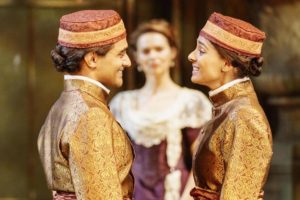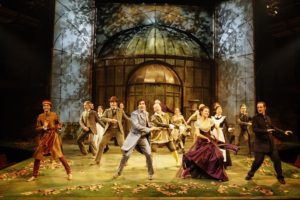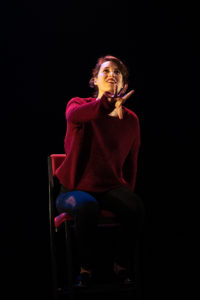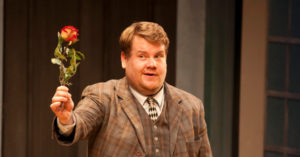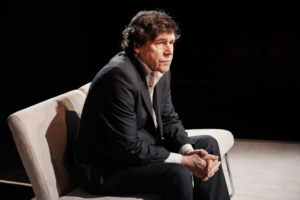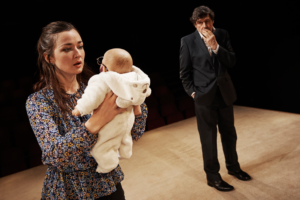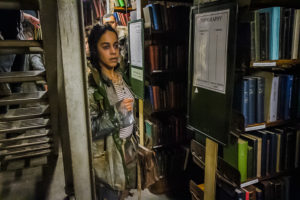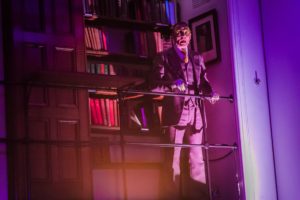CFT production goes to the heart of Kane’s scream of despair
★★★★
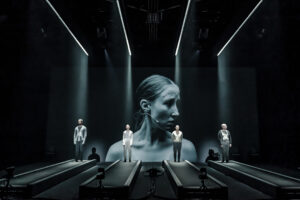
Four actors are standing on four travelators which are in reverse so their characters are constantly having to move forward. While in constant motion, they face front and speak, usually in a staccato sound, often in short single sentences or phrases, some of them repeated. It sounds like a spray of bullets from a machine gun.
They seem to be talking to you but they may also be talking to each other or to no-one. The travelators keep them separate, even if they are communicating, so the effect is of isolation.
Is it all the stream of consciousness of one person? Are they all dead or on their deathbeds facing a form of judgement day? There is no plot, no clear relationships, not even clearly defined characters. As someone says at one point: ‘If this makes no sense, then you understood it perfectly’. So I think I must have understood it perfectly. No matter. I certainly found it engrossing.
Chichester Festival Theatre’s artistic director Daniel Evans talked in his interview with me about seeing Crave in a new light because of the isolation we are all feeling at the moment. I’m sure this is true, but the director Tinuke Craig seems to have got beyond the lockdown resonance to the very heart of this play, because it’s not only about the loneliness but also the darkness of human existence.
When she wrote the play Sarah Kane offered no help in how to stage her text. It has been done in many ways, for example with the characters together in a room, but Tinuke Craig’s decision to stage Crave in this way, both in concept and the realisation in Alex Lowde’s set is genius, even if it may have been triggered by the requirements of social distancing. These anonymous traumatised characters are truly isolated and stuck on their own relentless path. “Here I am in the darkness again,’ says one. ‘On the edge of nothing’ comes the liturgical response.
You wouldn’t be surprised if this was a play by Samuel Beckett except there is none of the hope and courage that his characters show in the face of their futile situations. Here there seems to be only despair at the human condition.
I found myself deeply disturbed by this bleak view of life but could perhaps have been more moved if Kane had made her characters more like real people that I could connect with. However, I hesitate to call this a failure on her part as I assume it was a deliberate decision to disconnect them emotionally from those watching, just as they have no names, only letters A, B, C and M.
So much of what they say you might generously call aphorisms, like ‘no-one
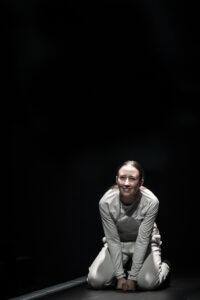
survives life’, and there are echoes of other works, which is not a criticism. The borrowing reminded me of T S Eliot’s The Waste Land. I think the poetry of this piece- and it is a poem- is not only in what is said but how it’s said. During the play someone describes poetry as ‘language for its own sake’ but the language of this poem has a kind of jagged beauty because, within its cadence, telling words about need and rejection constantly jab at you. And every so often a line really brings you up short, like: ‘What I sometimes mistake for ecstasy is the absence of grief.’
The actors were impressive. Neediness and desperation pervaded all that they did. Some of what they talked about was very upsetting. Erin Doherty‘s character referred in a sometimes strangulated voice to the rape and abuse she had received and talked about her poor self image. Jonathan Slinger’s character first announced he was a paedophile which then coloured a subsequent long and touching monologue about love which itself was later contradicted by his nasty cynicism. A mentiuion too for Alfred Enoch and Wendy Kweh. It was a bravura performance by all concerned.
‘A horror so deep only ritual can contain it’
The sound, composed by Anna Clock, comprised sawing, disjointed, low notes played on, I think, a cello. It was discomfiting but in just the right way. And Ravi Deepres’ back-projected film of images of the characters, sometimes negative or blurred, added rather than distracted. I was particularly struck by a close up of Erin Doherty’s face and the words ‘What have they done to me’ gradually appearing in writing on her skin.
When one character talked of ‘a horror so deep only ritual can contain it’, I thought of the horrors that were being contained on this occasion because they were being presented within the ritual of a play. And when I say ‘contained’, I mean only just. At the end, in quite biblical language, the characters embrace the freedom of death, and the play ends with a blackout. I was left totally wrung out.
About the screening. The process of logging in to view the event was straightforward and I was pleased that I was able to sit back and watch it on my telly with good picture quality rather than on blurry Zoom or the small screen of my laptop. The live broadcast went without a hitch when I saw it. We had front views, side views and close ups but in a way that enhanced the performance. The way the production was done had the advantage that, although it was a theatre show, it didn’t look like a film of a stage play because it could also be a movie about four people trapped in any empty space. Congratulations all round.
Performances of Crave was live streamed in November 2021. cft.org.uk
Click here to watch this review on the YouTube channel One Minute Theatre Reviews
Erin Doherty is currently playing Princess Anne in the Netflix series The Crown.
